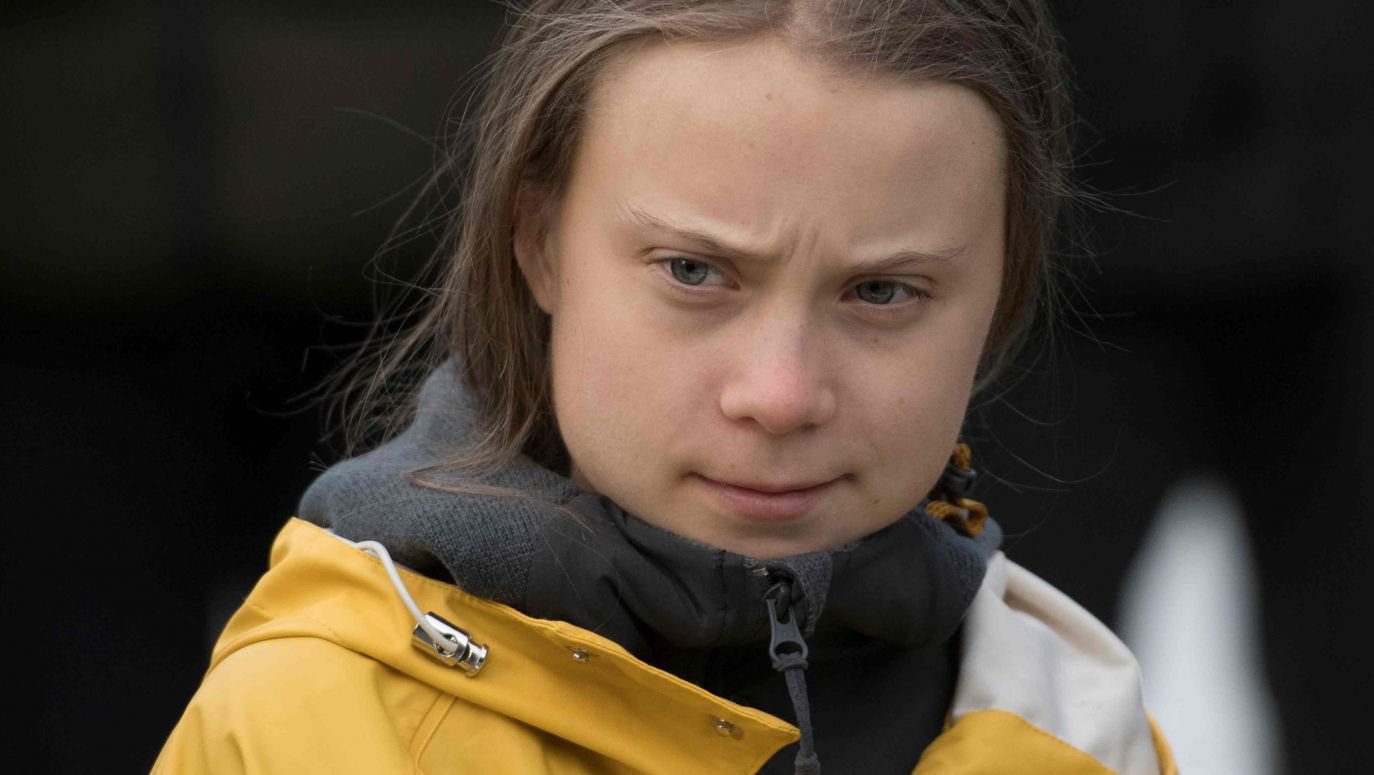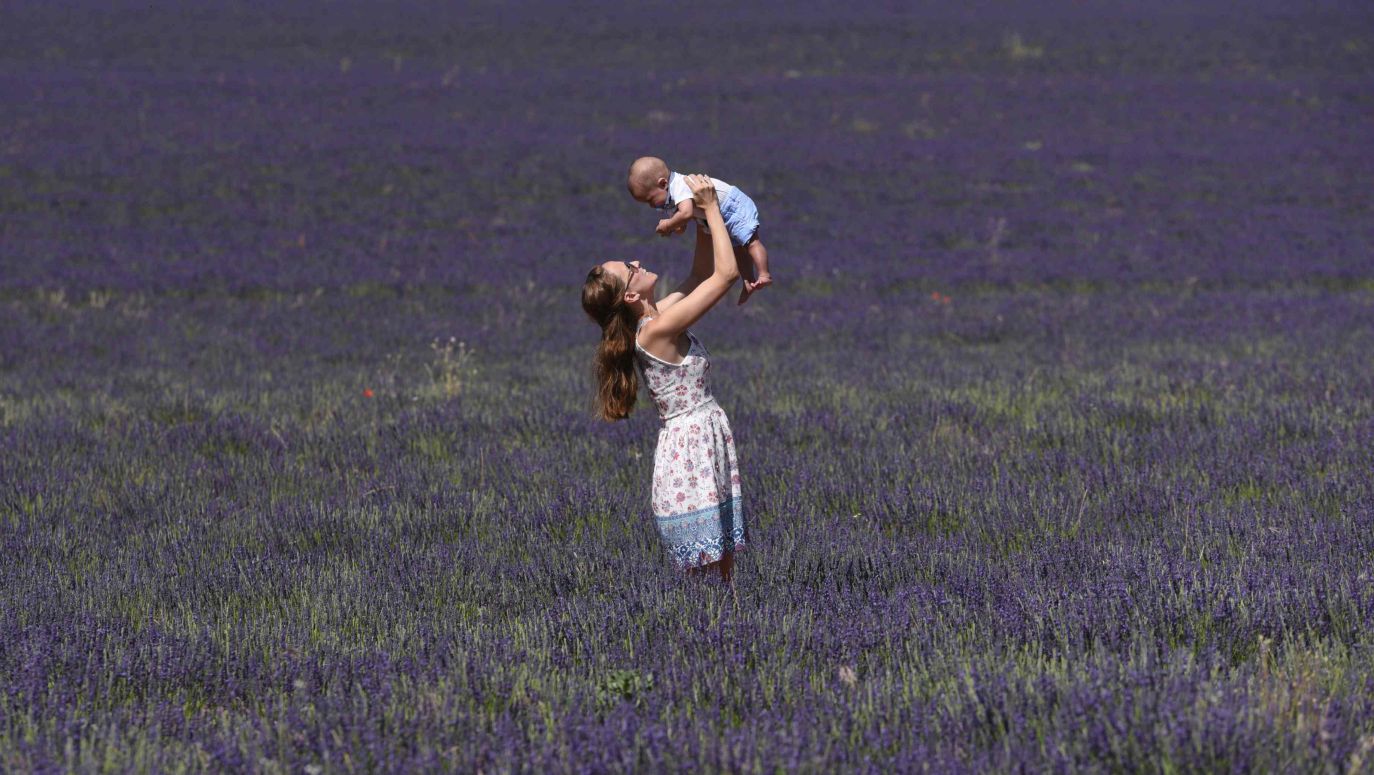Earth, a planet without men
20.04.2022
Raphael Samuel from Bombay, aged 27, announced some time ago that he was suing his parents as he was born into this world without his consent. – So many people suffer. If the mankind became extinct, Earth and animals would be happier. He added that human existence is completely meaningless.
David Benatar, a philosopher from the University of Cape Town and a leader of the increasingly popular antinatalist movement wrote down in one of his books: “whilst good people spare no effort to protect their children against suffering, only few notice that the only way to really prevent these children form suffering is not to give them life”.
The antinatalists preach that having children us immoral and egoistic. They argue that our existence is filled with permanent suffering related to diseases for instance, mortality salience, the feeling that happiness is unattainable as well as to fact that the responsibility for the negative human impact on the environment is lying with us. In view of the above, they argue, we have no moral right to condemn new people to such fate, therefore we should stop procreate.
This attitude, although it may seem to be an innocent craze, has begun to penetrate the mainstream in recent years. It breaks through into the largest Western media and universities there. Antinatalist books are published by prestigious publishers. For example, David Benatar's book “Better Never to Have Been: The Harm of Coming Into Existence”, from which this opening quote is taken, has been published by Oxford University Press.
This trend has, of course, also reached Poland. In 2020, Stanisław Anderski Scientific Society published the book "Antynatalizm. On the immorality of begetting children ”by Mikołaj Starzyński, a “Newsweek” photo editor. In turn, this month, as announced by TNSA, we can expect the publication of David Benatar's book “Best – Not Born”.
On the website antynatalizm.com, where Benatar's book is promoted, it was briefly reviewed by prof. Waldemar Kuligowski, an anthropologist from Adam Mickiewicz University of Poznań: “The moral duty of a sensitive and responsible man is to refrain from bringing new members of our species into the world. Why? Because people cause great deal of pain and death. At the same time, they exert such a detrimental effect on other creatures that wisdom dictates refraining from procreating. In his book, David Benatar presents the view known as antinatalism(…)”.
The anthropologist also quoted Benatar: “How many more producers of feces and urine, intestinal gases, menstrual blood, sperm, sweat, phlegm, vomit and pus do we need?” asks the author. “How many more bodies do we have to get rid of?” Then, not hiding the huge impression made on him by the book, prof. Kuligowski concludes: "Benatar's book not only gives food for thought – after having read it, I could not fall asleep."
A streak of torment
The roots of antinatalism go back to ancient Greece. Prof. Kuligowski in the January interview given to 'Gazeta Wyborcza' noted that “the choir in Sophocles' <> repeats the phrase: <>”. Referring to less distant times, the anthropologist mentioned Arthur Schopenhauer, “for whom life is only a series of torments and unsatisfied needs that have no ultimate goal”, and also the twentieth-century philosopher Emil Cioran (“How meaningful are the titles of his works: 'On the inconvenience of birth' or 'An outline of decomposition'”).
By the way, it is puzzling how the journalist of "GW" defined antinatalism in a question addressed to prof. Kuligowski: “Is this social altruism a novelty in our culture?” Social altruism? Really?

They’re selling us jewelry, cosmetics, or chocolate by creating goosebumps.
see more
One of the ancestors of modern antinatalism was Peter W. Zapffe (1899-1990), author of the essay "The Last Messiah" published in 1933. “This Norwegian philosopher argued that the man was a biological paradox. On the one hand, he wants to live, and on the other, he is aware that his life will inevitably lead to death. The tension between the drive to live and the mortality salience was, in his [Zappfego's] opinion, unbearable, and various social, religious and cultural practices are simply meant to make us push this paradox out of consciousness. Zapffe was of the opinion, however, that such half-measures were insufficient, and that humanity should stop deceiving itself and end its existence by refraining from procreation, “we read in the article by Maciej Witkowski, author of the Jagiellonian Club”.
What distinguishes modern antinatalists is their attitude to ecology. They are worried about the natural resources that people consume, about the carbon dioxide each of us emits, and the spectre of a climate catastrophe in general. They argue that the Earth is overpopulated and that universal cessation of procreation is the best way to solve this problem. Some of them, such as David Benatar also promote veganism.
People are harmful
- Antinatalism is connected with the vision of a global climate catastrophe. Proponents of this trend believe that the carbon footprint left behind by humans is a blot. Therefore, it would be better if new people did not come into the world – explains doctor habilitated Michał Łuczewski, sociologist and psychologist from the University of Warsaw.
"I boycott human reproduction because of the damage humans have done to the Earth and its inhabitants," said Patricia MacCormack, professor of philosophy at Anglia Ruskin University in Cambridge, author of “The Ahuman Manifesto: Activism for the End of the Anthropocene” to the Cambridge Independent. “MacCormack made it clear that her antinatalist manifesto is far from promoting mass death, genocide and eugenics. She is just calling people to stop reproducing.
“No life [given this assumption] is lost, no being is mourned. If we stop reproducing, we will be able to care for all the already-living inhabitants of [our planet], both humans and animals, and to take care of the Earth itself, minimizing the damage done so far. This is an activism of care” – emphasized prof. MacCormack, which is known for her original style and preferences (she belongs to a gothic subculture).
Raphael Samuel from Bombay, aged 27, whose story was presented by the BBC in 2019, went even further. He stated that ... he was suing his parents (NB lawyers) as he was born into this world without his consent. By the way, he stated that an immediate cessation of procreation would be beneficial for our planet. – So many people suffer. If the mankind became extinct, Earth and animals would be happier. It would certainly be better that way. No man will suffer. Human existence is completely meaningless, he stated.
- An attitude like: “If there are no children, we will save the planet. Man is a cancer in the body of nature and should be exterminated ” – it proves the complete mixing of young people’s value systems. When we reject traditional values such as family, God or honor, we have a psychological need to pursue some noble goal. The salvation of the nature took the place of traditional values in this case – Bogna Białecka, psychologist, president of the Foundation for Health Education and Psychotherapy comments for TVP Weekly.
Michał Łuczewski, in turn, recalls the thought of the German philosopher Odo Marquard that people today do not have a conscience, but become the Conscience. – Looking at Greta Thunberg, for example, we can see that she is trying to play only one role. She can never relax as she wants to be the Conscience. And the Conscience must always be clouded and suspicious. Only that it is beyond human strength, because only God can be the Conscience. Such an attitude takes away from people the possibility of becoming someone with multiple roles, with different identities to choose between; someone who is happy – the sociologist believes.
Fewer children, less greenhouse gases
The beliefs of antinatalists are confirmed by research, although as a general rule they are not exactly blessed with excessive attachment to facts or to logic. Many of the supporters of the antinatalist movement, for example, picked up on theses from the research by Seth Wynes (a geographer at Concordia University in Montreal) and prof. Kimberly Nicholas (an ecologist at Lund University), published in 2017 in Environmental Research Letters. It was loud in Western media.
The study showed that giving up offspring would significantly reduce the emission of greenhouse gases into the atmosphere, the accumulation of which is the cause of climate change.

Those with hair described as 'African' or 'afro' are reportedly discriminated against.
see more
Scientists have calculated that if one person gives up the car – CO2 emission per year will be reduced by 2.4 tons; avoiding air travel – we will reduce 1.6 tons of CO2 (in the case of a round-trip transatlantic flight), and by not eating meat – 0.8 tons of CO2 per capita per annum. Meanwhile, according to the authors of the study, the resignation from having even one child is associated with a reduction of CO2 emission (attention!) By as much as 58.6 tons per year!
The problem is that Wynes and Nicholas' findings are not supported by any other data. In 2017, i.e. at the time when their work was published, according to World Bank data, the most CO2 per capita per annum was emitted in Qatar (32 t), then in Kuwait (22 t) and the United Arab Emirates (almost 22 t). For comparison: in the United States, almost 15 tons of CO2 per capita were emitted, in Germany – almost 9 tons, and in Poland – slightly over 8 tons. This completely undermines the thesis that resignation from having one child would reduce the annual CO2 emission by 58.6 tons.< br>
Let us assume hypothetically that we agree with the antinatalists. So we recognize in our great humanitarianism that we are morally responsible for future generations and that a good solution is a world without people. But what next? – asks Dr Rafał Towalski from the Institute of Philosophy, Sociology and Economic Sociology of the Warsaw School of Economics.
And he adds: “The world around us is a social construct, filled with meanings. We have given humanity the highest rank. We decided that the Earth is our planet and in order to survive, we must save it. Why do we need Earth without people? Thus, philosophers would have to think more deeply about antinatalism, decomposing this view into prime factors. Because I have the intuition that there is a lot of contradiction in this world view.
The world is falling apart
So how is it possible that a view that, until recently, could only be treated with a smile of pity, finds such fertile ground? Why are such attitudes considered attractive – especially for young people?
According to Bogna Białecka, we have been dealing with social tendencies for years, the fruit of which is antinatalism. – Such as the increasing number of divorces, the increasing number of children brought up in incomplete and broken families, or the growing popularity of unions in the form of cohabitation. In the long term, these phenomena cause young people to stop believing in happy relationships for life. They are also afraid that they will have to raise their children alone, the psychologist believes.
Dr Rafał Towalski draws attention to another aspect: the contemporary young generation experiences shocks for which they are not prepared. – We are constantly bombarded with media messages about the pandemic, wars, and the ecological crisis. It's hard to keep your peace of mind. Many young people may get the impression that the whole world is falling on their heads, says the sociologist.
Whereas Michał Łuczewski, when asked whether the antinatalist attitude – under the pretence of concern for the planet – is in fact a hedonistic attitude, replies that hedonism may be one of the syndromes of this phenomenon, but it is certainly not its essence. – I can see here, first of all, a fight for moral capital. To be on the “good side” – he says. – Besides, even when I observe hedonistic attitudes within the young generation, this hedonism is often sad. Maybe it's not even hedonism. Searching for partners does not give happiness to young people – Łuczewski concludes.
Many modern people seem to be in a state of gnosis. Unlike the Gnostics of yesteryear, the present-day Gnostics do not believe in a "distant God" who can save us. According to them, there is no God. Antinatalists, who think the world is bad, behave similarly to these gnostics. Some of them may be hedonists and some may well be ascetics. But eventually, both are unhappy – emphasizes the sociologist.
Bogna Białecka suspects that the slogans repeated by antinatalists that life is associated with constant suffering and a sense of hopelessness, with a permanent feeling of unhappiness, may in some cases also indicate undiagnosed depression. – This approach is a typical symptom of depression. For years, we have been observing a sharp upward trend in depression with young people. What's more, for two years, i.e. from the beginning of the pandemic (due to lockdowns, social isolation), this trend has brutally accelerated – says the psychologist.
On the light side of the force
Meanwhile, according to Michał Łuczewski, antinatalist views may be associated with depressive states, but this factor should not be overestimated. The source of the problem is the lack of a sense of security and anxiety, which can manifest itself in many different ways, including depression, but also activism and even self-harm.

Local salt, honey, rosehip jam... The main difference: Poles favour sour flavours, Ukrainians sweet ones.
see more
- In older generations, to build a sense of security, it was enough to make a career, be a member of an institution, go to church ... There were many “places” of safety. And today? Institutions such as the Church and the family are falling apart. Young people keep repeating that they are looking for areas of security. But they do not find them, says the sociologist.
In view of such a state of affairs, they want to show that they are on the “light side”. Even at the cost of their own happiness the children give us. – By showing that they are able to sacrifice a lot for the benefit of the climate, they position themselves higher in the game for moral capital. They assume that if they sacrifice themselves, they'll become better people. They hope that thanks to this, at least for a moment, no one will attack them, no one will challenge them, no one will exclude, concludes Michał Łuczewski.
- Antinatalists pose important questions about the condition of our civilization and where it is going – says Dr Rafał Towalski. – On the other hand, the solutions they propose raise serious doubts, even they are unacceptable, from my point of view. For a simple reason: rumors of the death of civilization are deeply exaggerated. We see how complex the world we live in is. And making such predictions is, in my opinion, extreme arrogance.
- Besides, antinatalism questions all the principles of the social order. It undermines the sense of having different world views and relieves us of the obligation to worry about what will happen next. But we know not what will happen next. Maybe there will be an ecological disaster, and maybe not. We are not able to predict it – emphasizes Towalski.
According to the sociologist, another paradox is that this view is very popular in the circle of Western civilization although the overpopulation problem does not apply to this particular circle.
Weak people’s hard times
So you can cite the saying: “Hard times make strong people, strong people make good times, good times make weak people, and weak people make hard times”. According to Bogna Białecka, it contains a lot of psychological truth.
Over the last 30 years, we have found ourselves in a situation where it was “all too well” for us. As a result, the noble motives of caring for others began to disappear in people. And childlessness allows for a comfortable life. Taking care of children is demanding. The approach: “I have no children, so I can take care of myself 100%” – can also be a value for someone. Unfortunately, many people are not aware of how much the family helps us develop. And that having children is one of the strongest sources of life satisfaction and personal development, says Bogna Białecka.
And she cites studies revealing that children are the most important factor in preventing depression and suicidal thoughts, also among people over the age of 50, that mothers with many children are the least depressive and happiest group among women. On the other hand, the most depressive and least happy are women having no children by choice.
Antinatalism, on the other hand, is a thoroughly pessimistic trend. Joshua Rothman, a New Yorker journalist, in one of his articles described David Benatar as the most pessimistic philosopher in the world.
Although Michał Łuczewski points out that all people really long for happiness in their hearts. – This is part of the nature of our species, which exists because we enjoy sex and children give meaning to our lives. Benatar's philosophy saying that the response to the nonsense of life should be to prevent procreation comes down to the fact that there would be even less of this sense then, comments the sociologist.
And he adds: – In his book” Man in Search of Meaning”, Viktor Frankl showed that even the prisoners of Auschwitz were able to give a meaning to their live. By giving it a transcendent meaning, by referring to God, they were able not only to get through the most difficult situations, but also to lead a dignified life. Benatar proclaims that the cure is complete pessimism and an attack on life. Yet people like Viktor Frankl have gone through hell and lived in much worse times than we have. And they found the meaning of life.
Antinatalism – says Michał Łuczewski at the end – can also be mentioned in the context of the Russian invasion of Ukraine. It seems that the Russians would like to instill such a philosophy – that life does not make sense – to Ukrainians, and also to Western societies. If they succeeded, the West would be completely defenseless.
– Łukasz Lubański
– Translated by Dominik Szczęsny-Kostanecki












